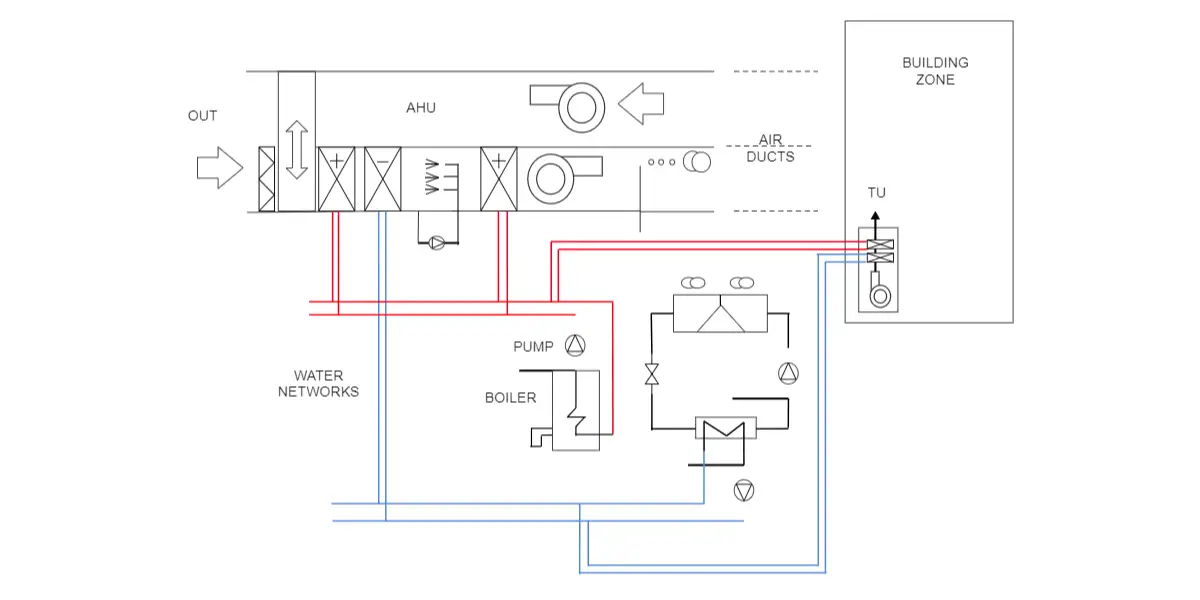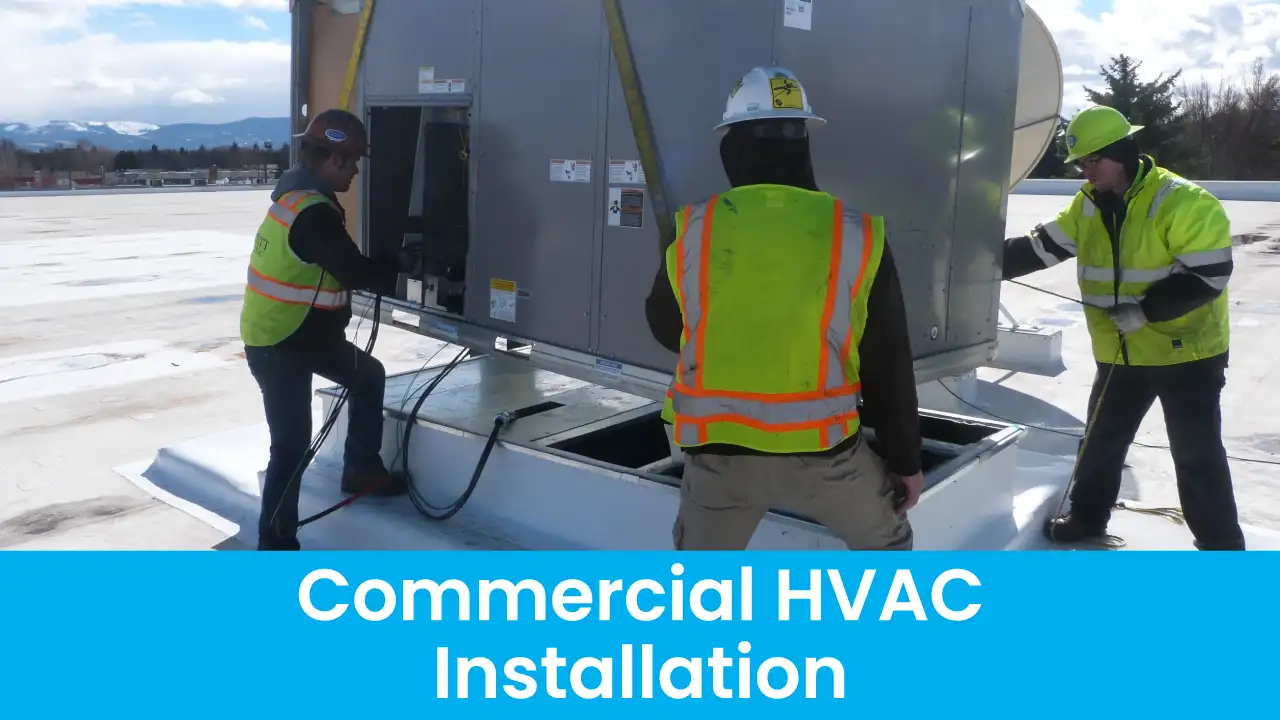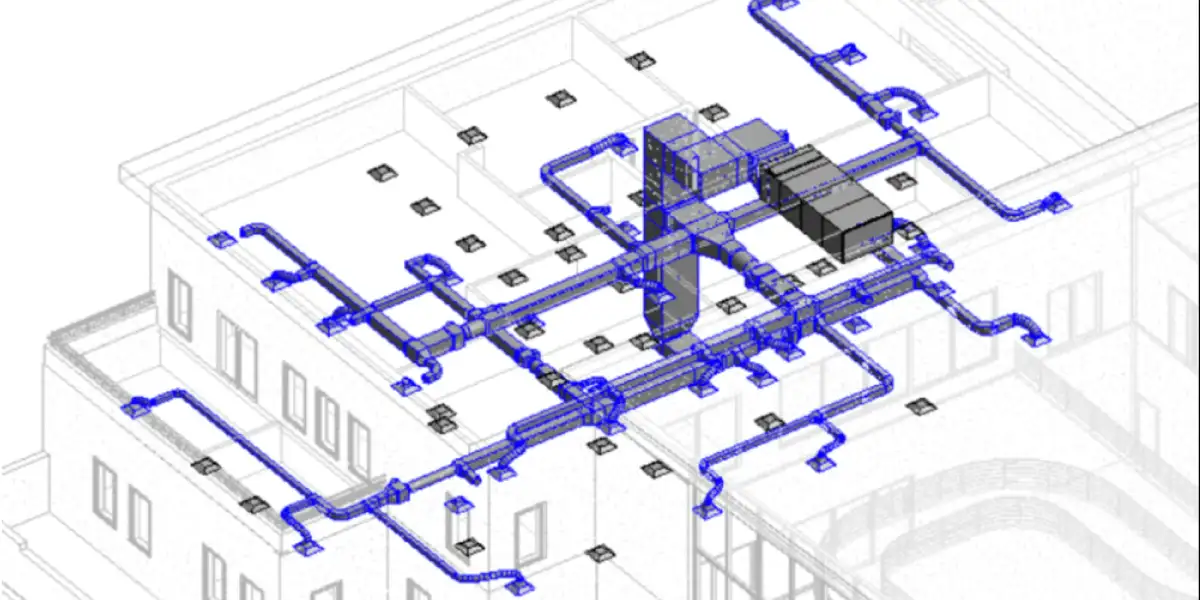Whoever doesn’t want to stay in a comfortable apartment. And you are one of them. The installation of HVAC systems can play a huge role when it comes to ensuring comprehensive comfort. But there are a good number of people who don’t know the proper process of commercial HVAC installation. And due to this, they can make the most out of the system.
First, you should have a proper. Now, based on the type of apartment you leave, the installation process of the hvac system can vary. Fortunately, you will find many professionals who are responsible for the job. But then again, it is always important to have some sort of knowledge about the facts.
Why Consider Upgrading Your Commercial Hvac System?
Is your HVAC system doing well? Answering yes means upgrading the procedure is unnecessary. Or, hvac commercial installation is a must.
Age and Inefficiency of Existing System
Who knows the commercial hvac ductwork at your home might often break down. Due to the passage of time, the efficiency of the system can be reduced. You need to upgrade the system in this type of situation. Other than that, the performance you have will not satisfy you anymore.
It is always recommended to perform commercial hvac duct installation every 15 years. But you may need to perform the job too early if something went wrong.
Issues With the Indoor Air Quality
This is very concerning. You should never uncheck the issue of bad air quality. However, this can happen due to the faulty HVAC system. You need to upgrade the system in order to eradicate the problem.
The bad air can have a negative impact on your health. Sometimes the allergy symptom may appear among your family members. The commercial hvac install shouldn’t be undone in this case.
Looking for the Most Energy Efficient Option
Upgrading the HVAC system of your home can increase the energy efficiency. A good number of people in the United States were off the job in order to make sure the energy efficiency level goes high. If the heating or air cooling system is in a bad condition, then it might reduce the energy efficiency.
Planning for Commercial Hvac Installation

You need to spend enough time on planning. This will give you a lot of ease when it comes to commercial hvac installation. There are people who often need to bear a huge amount of hvac unit cost due to the lack of proper planning.
Come With Touch With the Experts
Look, you might have some sort of knowledge about the HVAC system installation. But a professional service provider can always help you in this case. So all you really need to do is find an expert who has vast knowledge in this field.
Go with the Site Assessment
A complete site assessment is necessary for an efficient commercial HVAC installation. Qualified contractors consider building size, layout, insulation, air sealing, occupancy, ducting capacity, electrical capacity, and accessibility. They may create a system that matches the building’s needs for maximum comfort and energy efficiency. The contractor uses this thorough evaluation to develop a system that fits the building’s needs and maximizes comfort.
Determining HVAC Needs
To properly heat, cool, and ventilate a building, the HVAC contractor must consider many elements. Climate, building heat loss, indoor temperature, and cooling needs are factors.
Insulation, window type, and tenant preferences also matter. Ventilation also addresses IAQ, occupancy, and building pollutants. Humidity, fresh air intake, and energy efficiency are also important. Considering these variables, the contractor can offer the best solution for the structure.
Choosing the Right HVAC System Type for Your Building
Think about size, layout, budget, energy efficiency, noise, and maintenance when choosing an HVAC system for your business. Water-Cooled Chiller Systems, RTUs, AHUs, and VRF/VRV Systems are common commercial systems. While Split Systems are quieter and more adaptable, RTUs are easy to install and efficient for single-zone buildings.
While energy-efficient, VRF/VRV systems are difficult to install and maintain. Talk to a skilled HVAC contractor to identify the best system for efficiency, comfort, price, and longevity.
Commercial Hvac Installment Cost
Commercial hvac cost per square foot vary based on factors such as building size, system type, existing ductwork, and labor rates. Low-end costs range from $15 to $17 for recreational buildings, while high-end costs can range from $23 to $28 for four-pipe office buildings with complex systems.
Buildings with specific requirements, complex systems, or new ductwork can increase commercial hvac installation cost. For a more accurate estimate, it’s recommended to get quotes from qualified HVAC contractors.
The Commercial Hvac Installation Process
Step 01: Pre-Installation
Air conditioning installation permits will be obtained by the contractor to comply with local building requirements and safety standards. Downtime will be scheduled as needed to minimize business disruption. Preparing the installation location includes removing old equipment, protecting finishes, and providing worker and material access.
Step 02: System Installation
Professionals will position outdoor and indoor air handling devices per manufacturer’s instructions for best performance and noise reduction. Ductwork will be meticulously built for optimum sizing, sealing, and insulation. Electrical rules require electricians to safely connect the HVAC system to the building’s electrical grid.
Step 03: Safety Considerations
The installation process involves safety considerations such as permit compliance, fall protection, electrical safety, material handling, and dust control. Technicians must wear fall protection gear, use appropriate electrical connections, handle heavy equipment and materials safely, and minimize dust generation. Clear communication is crucial to ensure project compliance and safety standards.
Step 04: Post Installation
A smooth transfer to a new HVAC system requires a comprehensive system startup and testing by skilled personnel, thermostat instruction for building occupants, and warranty and guarantee understanding.
After installation, contractors answer concerns, make minor adjustments, and schedule maintenance visits. The project is complete when functional and passes safety regulations.
Conclusion
A well-planned commercial HVAC system improves comfort, productivity, energy efficiency, building value, and downtime. They lower energy and operational expenses. An experienced contractor can assist in creating a comfortable, efficient, and cost-effective commercial environment. Talk to a trusted contractor about your needs immediately and go with commercial hvac installation services.



